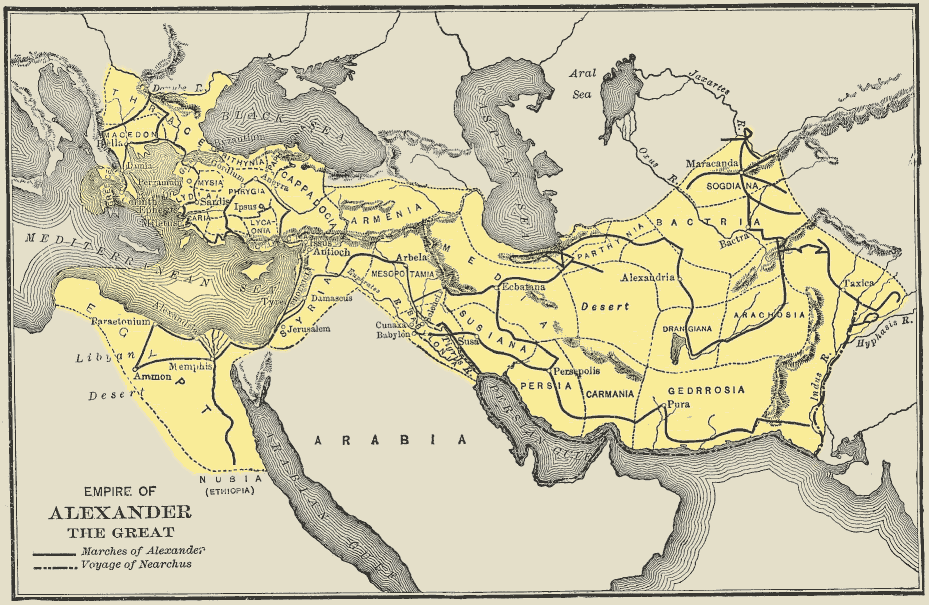
In 334 BC Alexander invaded the Persian Empire and began series of attacks that lasted 10 years. Following his conquest of Turkey, Alexander broke the power of Persia and conquered the Achaemenid Empire .
At this time his empire stretched from the Adriatic Sea to the North West province of India .
Alexander campaigned to reach the "ends of the world " and invaded India in 326 BC, achieving an important victory over King Porus at the Battle of Hydaspes . Alexander was impressed by the courage of Porus and restored him back to his throne , later on King Porus helped Alexander in his future campaigns .
He eventually turned back at the Beas river due to the demand of his homesick troops and threat from great Magadha Empire .

On his way back , he fell ill and died at Babylon in 323 BC; the city he planned to establish as his capital. Soon after his death his empire declined due to series of revolts .
Effects of the Greek Invasion on India :-
1. Direct trade rute established between India and Greece .
2. Greek settlements established in North West part of India who continued to live under reign of Chandragupt Maurya and Ashoka .

Gandhara school of Art ( Greek Roman Style)
3. The influence of Greek Art and architecture can be seen in Gandhara school of Art which is named as Greco Roman style of Art.
4. Greek astronomy was also introduced in India .



No comments:
Post a Comment